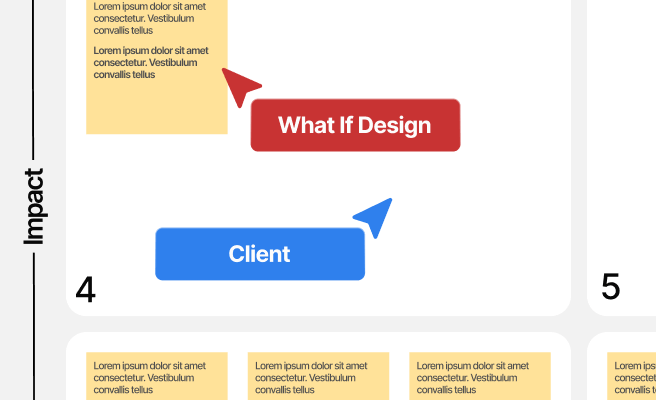Observational Study
<p>An observational study is a research methodology where the researcher observes and records the behavior of subjects without manipulating the environment or the subjects themselves. This method is particularly valuable in fields like psychology, sociology, and climate tech, as it allows for the collection of authentic data in natural settings.</p>
<p>Observational studies are crucial in understanding real-world scenarios and patterns. For instance, in climate tech, observing how users interact with a new sustainable product can provide insights into its usability and effectiveness. Unlike experimental studies, observational studies do not involve intervention, making them less intrusive and more reflective of actual behaviors.</p>
<h2>Types of Observational Studies</h2>
<p>There are several types of observational studies:</p>
<p><strong>1. Naturalistic Observation:</strong> This involves observing subjects in their natural environment without any manipulation. For example, a researcher might observe how a community adapts to a new climate tech solution like solar panels.</p>
<p><strong>2. Participant Observation:</strong> Here, the researcher becomes part of the group being studied to gain a deeper understanding of their behaviors and interactions. For example, a climate tech researcher might join a community using new agricultural technology to observe its impact.</p>
<p><strong>3. Controlled Observation:</strong> This takes place in a controlled environment where variables are kept constant, but the researcher still does not manipulate the subjects. For instance, observing the interactions of users with a climate app in a lab setting.</p>
<h3>Benefits of Observational Studies</h3>
<p>Observational studies offer several advantages:</p>
<ul>
<li><strong>Authenticity:</strong> They provide data based on real-world interactions, leading to more genuine insights.</li>
<li><strong>Flexibility:</strong> Researchers can gather data on a wide range of variables without the constraints of experimental controls.</li>
<li><strong>Longitudinal Data:</strong> These studies can be conducted over long periods, providing insights into changes and trends over time.</li>
</ul>
<h3>Challenges in Conducting Observational Studies</h3>
<p>Despite their benefits, observational studies come with challenges:</p>
<p><strong>1. Observer Bias:</strong> The researcher's perceptions and interpretations can influence the data collected. To mitigate this, using multiple observers and standardized recording methods is recommended.</p>
<p><strong>2. Lack of Control:</strong> Without manipulating variables, it can be challenging to establish cause-and-effect relationships. Researchers should complement observational studies with other research methods for comprehensive insights.</p>
<p><strong>3. Ethical Concerns:</strong> Ensuring the privacy and consent of subjects can be complex, especially in naturalistic settings. It is crucial to follow ethical guidelines and obtain necessary permissions.</p>
<h3>Real-World Examples and Tools</h3>
<p>In climate tech, observational studies have been instrumental in understanding user behavior and the impact of new technologies. For instance, researchers have observed the adoption of <a href="https://www.greenbiz.com/article/how-solar-energy-became-cheapest-electricity-source" style="color: #2896FF; text-decoration: underline;">solar energy</a> solutions in rural communities to gather data on economic and environmental benefits.</p>
<p>Several tools can aid observational studies:</p>
<ul>
<li><a href="https://www.nvivo.com/" style="color: #2896FF; text-decoration: underline;">NVivo</a> for qualitative data analysis.</li>
<li><a href="https://www.maxqda.com/" style="color: #2896FF; text-decoration: underline;">MAXQDA</a> for mixed methods and qualitative research.</li>
<li><a href="https://www.atlasti.com/" style="color: #2896FF; text-decoration: underline;">ATLAS.ti</a> for data management and analysis.</li>
</ul>
<h2>Conclusion</h2>
<p>Observational studies are a powerful tool in research, offering authentic and flexible data collection methods. Despite challenges like observer bias and ethical concerns, they provide invaluable insights, especially in fields like climate tech. By understanding and leveraging the strengths of observational studies, researchers can effectively analyze behaviors and trends in real-world settings.</p> <p>Increase user engagement that converts your demos into sales. Optimise your UX strategies with our audits.
<p>Fill out the <a href="https://tally.so/r/n97pxQ" style="color:#2896FF; text-decoration:underline;">UX Audit form</a> to get started. Ready to discuss your needs? <a href="https://cal.com/akhilak/what-if-design?duration=25" style="color:#2896FF; text-decoration:underline;">Book a consultation call</a> with us today.</p></p>

Let's scale your impact with great design.
Free consultation, no sales pitch
Thank you! Your submission has been received!
Oops! Something went wrong while submitting the form.
Let’s talk
Nothing great is built alone.
Let’s connect about your vision, our work and how we can collaborate.
Get in touch

